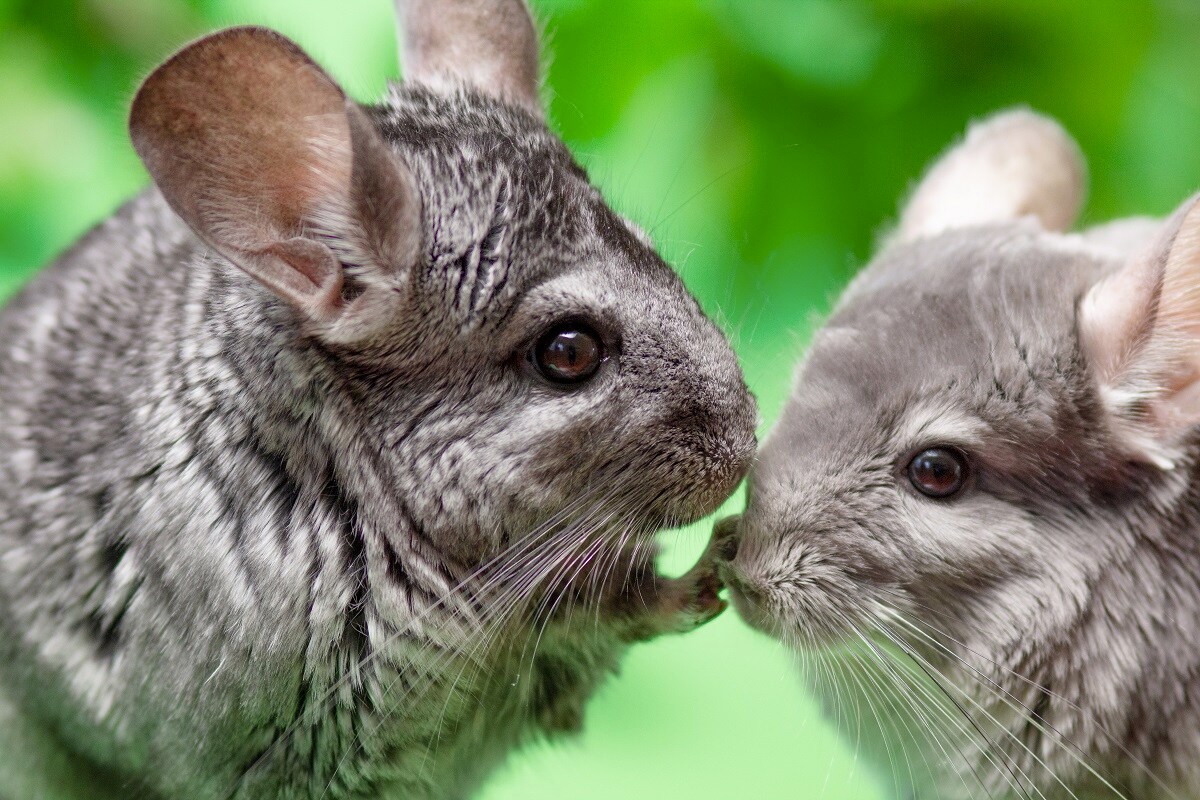Chinchillas are cute, curious little creatures that might be just the pet you are looking for. They are often quite cuddly, a favorite of young children, and can live up to ten or more years. They also are relatively easy to care for. If you decide that a chinchilla is right for your family, there are a few important things to note. Here are some of the basic guidelines for proper chinchilla care.
Habitat
It is essential to provide a good quality, spacious habitat, preferably with multiple levels, and a solid bottom. The spacing between the wires on the habitat cannot exceed one inch. 1-2 inches of quality bedding should be added to the bottom, and this should be changed out at least once per week. Keep the cage clean by spot cleaning and removing wet spots daily and disinfecting the habitat weekly.
Avoid placing the habitat in an area with direct sunlight or exposure to a cool draft, and keep in a secure, child-proofed location. Other items inside the habitat should include chewing toys and sticks to promote healthy teeth, nest box, dust bath and water bottle.
Diet & behavior
Chinchillas need fresh food and water readily available at all times. Check at least once daily to make sure there is plenty of each. The food, pellets and hay, should be high quality. Chinchillas can also enjoy fresh organic produce, but it must be less than 10% of their diet.
Being nocturnal, a healthy chinchilla can be expected to play during the night and rest quite a bit during the day. They are typically social and enjoy some gentle cuddling and being carried. Be careful when handling them, as their little bodies are very fragile.
Look out for overgrown teeth, lethargy, poor eating or other behaviors that seem unusual and contact your local veterinarian if you discover any of these signs of potential health issues.
Hygiene
Chinchillas should never be bathed in water. Instead, they receive a dust bath once a week. It is normal for their teeth to become less white over time. Look out for overgrown teeth, lethargy, poor eating or other behaviors that seem unusual and contact your local veterinarian if you discover any of these signs of potential health issues.

